
Prof. DDr. Wolfgang Dietrich
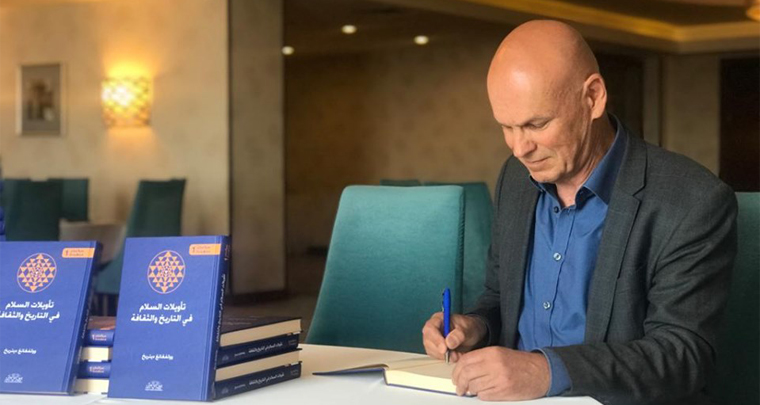
Wolfgang Dietrich was born in 1956 in a rural neighborhood to a family of businesswomen and lawyers. They were displaced in World War II and finally settled in Western Tyrol. This family background raised an early interest in questions of social justice, human rights and democracy. Inclusion and exclusion of certain groups and individuals, and in the psychodynamics of communities and cultures related to this interest.

Wolfgang Dietrich fulfilled his compulsory military service. After that, he studied history and German literature at the Department of Humanities of Innsbruck University. He completed his PhD in 1980 with a dissertation in social and economic history.
At the Department of Law of the same university, he graduated in 1984 with a Doctor of Laws LLD. His specific interest was international law.
In 1990, he was promoted to the degree of Adjunct Professor in Political Science at the Department of Social Sciences. This was based on his work on Contadora, the peace efforts for Central America,
During all these years, partly studied abroad, he enrolled additionally in courses of further disciplines. However, he was primarily concerned with questions and problems of human rights. In this field he focused on practical work. This made him, among others, spokesperson of the Austrian Section of amnesty international in the politically highly interesting period 1989-1991.
His interest in human rights had already brought him to Central America as a student. From the impactful impressions he gleaned there, he developed his career as a scientifically oriented practitioner or, be it, praxis-oriented scientist. He gradually moved to more areas of Latin America and conflict zones on other continents. His initially juridical interest in human rights shifted to rather political, philosophical, psychological and ethnological scientific questions.

The 1993 World Conference on Human Rights in Vienna decided the then ongoing cultural debate on ethical universalism versus cultural relativism strictly in favor of the first one. This made Dietrich move more towards the then still young discipline of peace and conflict research. Just like the first holder of a full professorship for peace studies in Europe, Adam Curle at the University of Bradford in England, Dietrich defined peace studies as a trans-discipline. That means an amalgam of knowledge and methods of older subjects like political science, international law, (humanistic) psychology, (postmodern) philosophy, (interpretive) ethnology, (democratic) pedagogy and more. Due to his education, training and practical experience in several of those fields he utmost embodied this approach biographically.
Invited by Anton Pelinka, Wolfgang Dietrich held his first academic seminar in 1986 at the Institute for Political Science of the University of Innsbruck. Since then, he has taught for four decades at very different departments of uncounted universities all over the world.
From 1995 to 2007, he was the academic director of the Austrian Institute for Latin America (LAI). He drafted and coordinated scientifically the Institute’s Master of Advanced Studies (MAS) program in Latin American Studies according to §§27 and 28 Universitäts-Studiengesetz 1997.
The academic preparation and coordination of the conference series Regional Integration, Intercontinental Cooperation EU – Latin America and the Questions of Poverty, Development and Democracy (REAL 2006) in the frame of the EU – Latin America Summit of Vienna during the Austrian EU presidency 2006 stands out of the many obligations that he took for the LAI in this period.
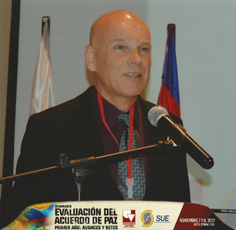
Also in 1995, he became the academic director of the European Peace University (EPU) in Stadtschlaining. He wrote the curriculum of their MAS program in Peace and Conflict. Also this was drafted according to §§ 27 and 28 Universitäts-Studiengesetzes 1997.
He subsequently conducted years of fieldwork and research in Africa, Southeast Asia, India, Latin America, and the Caribbean. These were mainly financed by the then-newly established Austrian Programme for Advanced Research and Technology (APART) of the Austrian Academy of Sciences.
Dietrich functioned as a regular guest lecturer for the MA Program of International Peace, Conflict and Development Studies at the Universitat Jaume I. in Castellón de la Plana/Spain. In 2001,he was called back to Innsbruck. He should establish the MA Program for Peace, Development, Security and International Conflict Transformation. This program rapidly gained an international reputation in terms of contents and didactics during the two decades of his coordination.
He has been a reviewer, evaluator, and consultant for governmental institutions and the non-governmental sector for decades. He participated in projects of applied peace and conflict work and personally directed some of them. Since 2014 he supported the establishment and development of the postgraduate program FORMAÇÃO DE AGENTES DE PAZ of Paz & Mente in Florianopolis/Brazil. Since 2018 he developed curricula for Peace Studies programs at various universities in Iraq, coordinated by the Iraqi Al Amal Association.
His first publications on the political developments in Central America attracted public attention. They provided systematically elaborated information on an area that was hardly known but intensely debated in the German-speaking world at that time.
Most prominent in his vast oeuvre of four decades, however, are the texts in peace research. They range from the Call for Many Peaces in the 1990s via the transrational peace philosophy since the Millennium to the proposal for activity and proceeding-oriented speech of peacing at the end of his career:
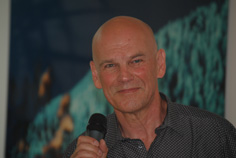
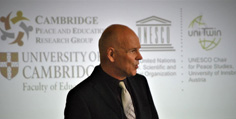
Wolfgang Dietrich was appointed UNESCO Chairholder for Peace Studies at the University of Innsbruck in 2008. He held this function and, with it, a high degree of responsibility and a lot of work for 15 years. However, he always considered it distinction and honor for his excellent team at the so-called Innsbruck School of Peace Studies.
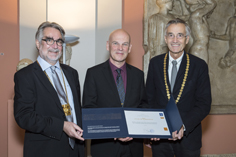
In the same vein, his promotion to Honorary Professor at his home University in 2015 was the highest award and recognition. Then-rector Tilman Märk lauded Dietrich’s prolonged efforts in peace research and peace studies in Innsbruck.
Indeed, in 2017 the Unit for Peace and Conflict Studies was created under his direction. In 2018 followed the Research Center for Peace and Conflict INNPEACE. Hhe co-directed with Josefina Echavarria until both left the University.
In 2015, the Association of the Alpine States, ARGE Alp, promoted Wolfgang Dietrich to peace ambassador of the Alps.
He was on the list of the 211 personalities nominated for the Nobel Peace Prize 2020.

In 2024, Wolfgang Dietrich retired and withdrew from public life.